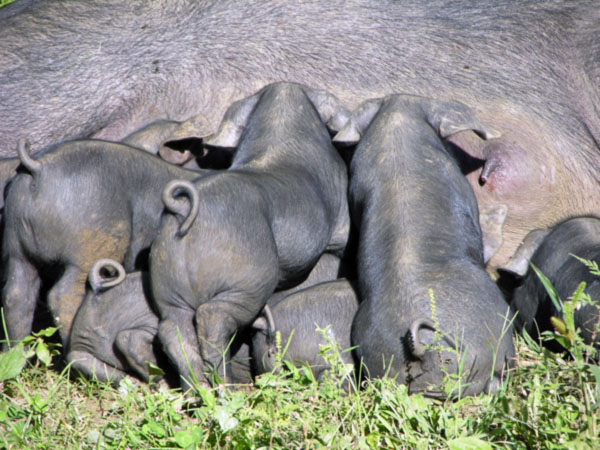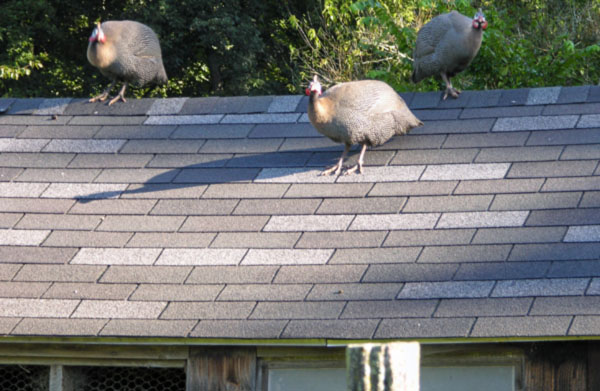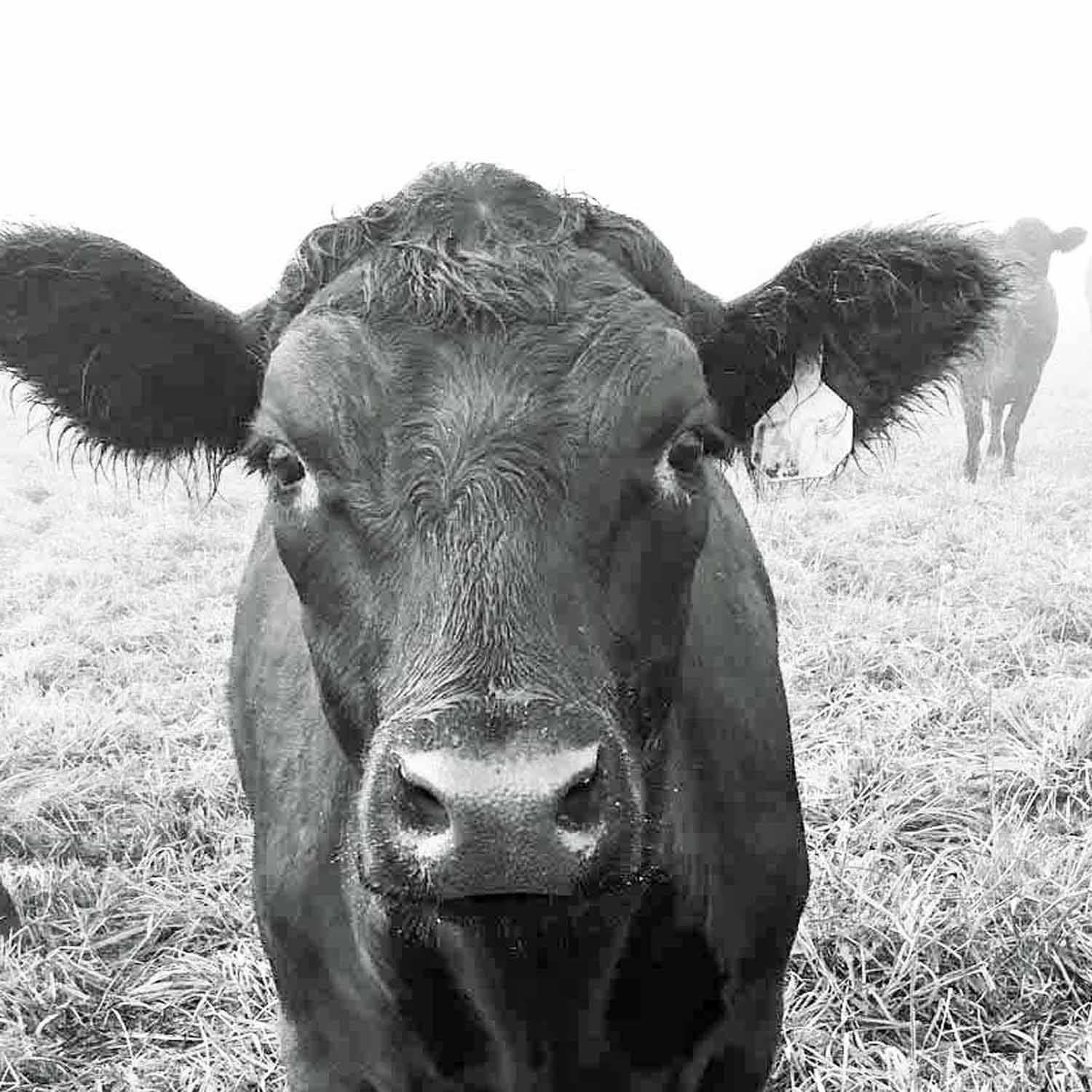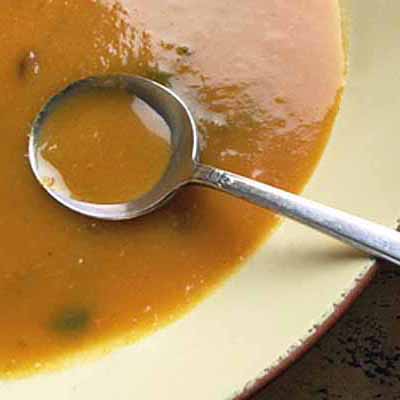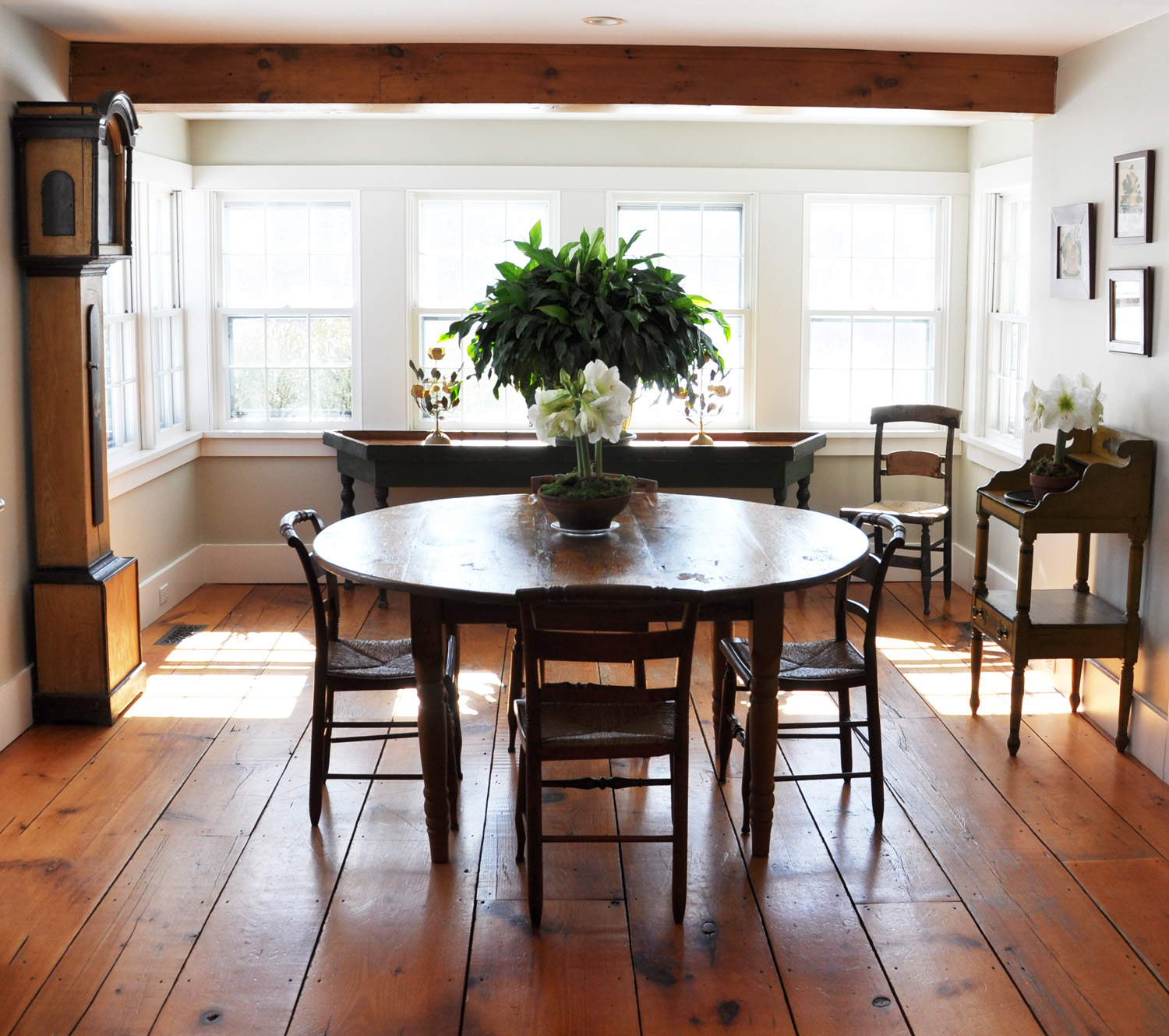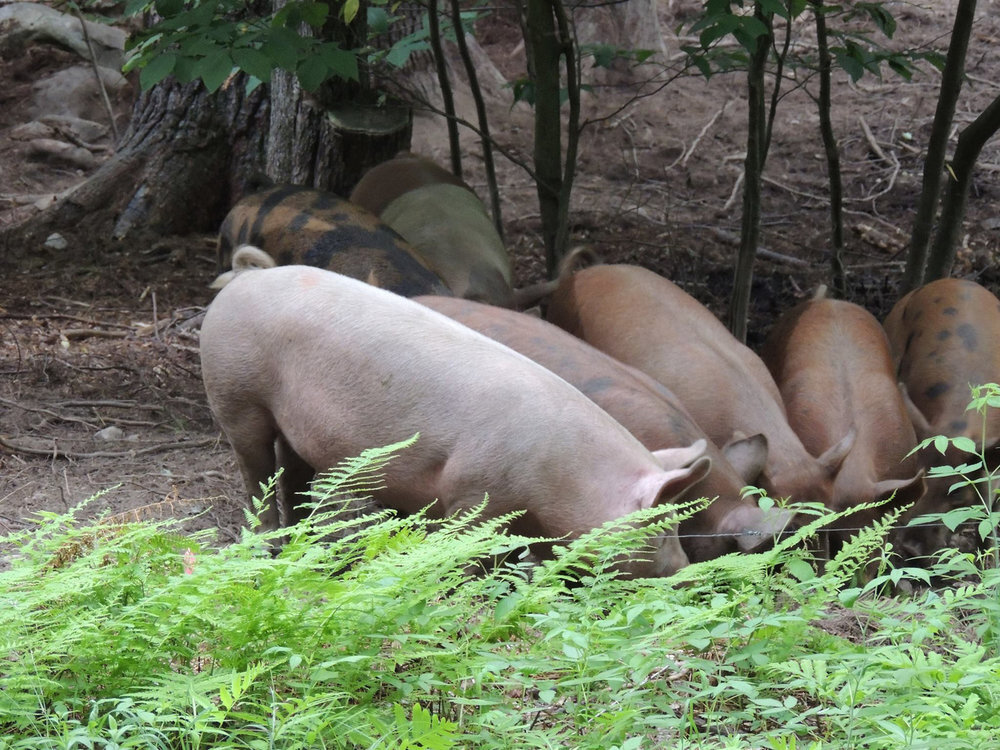MOON IN THE POND FARM
Dominic Palumbo's Moon in the Pond organic farm in Sheffield is as idyllic as you can imagine a farm to be. Dom's commitment to teaching sustainable agriculture to aspiring farmers is a driving force behind the development of this working farm as a nonprofit entity, with educational programs dedicated to cultivating a thoughtful approach to farming.


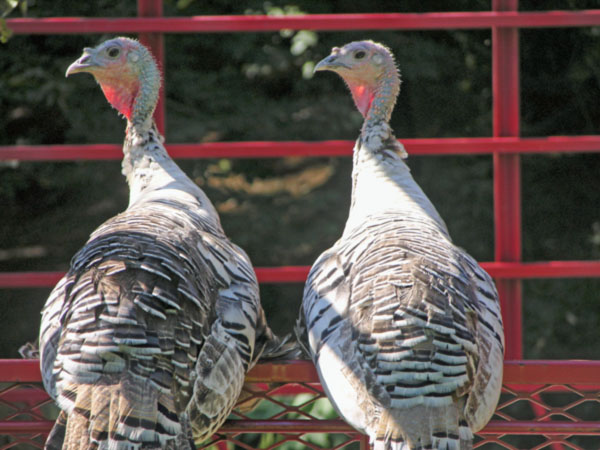


INTERVIEW WITH DOMINIC PALUMBO
How did you get inspired to be a farmer? When I was a child, I happened to buy a packet of corn seed, and in my basement I put a container of dirt and planted the corn seed in winter. I might have been 7 years old. I remember the seeds sprouting and the corn growing. And, I was so excited, when spring came, I got other seeds (sweet alyssum) and put them in a spot in the back yard and forgot all about it. After forgetting about it, I eventually saw the alyssum flowers. And that was it.
When I was young I did some landscaping services. I dropped out of college and got a job at a garden center, then got a job with a landscaper, then did tree work, then worked at a nursery. And it went on that way for 10 years. It was the kind of work I gravitated towards. Then I wanted to get some deeper learning, so applied at the New York Botanical Garden, got into the school of horticulture and went to study there for 2 years. And, I absolutely loved it. Suddenly I was where all the answers were. It was a great institution on so many levels because there was science, there was horticulture, agronomy, there was every kind of every kind of plant study happening at the New York Botanical Gardens. And, it was an institution, so any question I had was answerable. And the people that were there were free-flowing fonts of information and loved to pass on their knowledge.
"Dominic Palumbo is an organic farmer in Sheffield, MA, whose acolytes admire his mind as much as they relish his meat, pork, eggs, chicken, and vegetables." DAN SHAW/ RURAL INTELLIGENCE
And I went from there to work on an estate in NJ - I worked for the Freylinghuysens. They were the founding fathers of the New York Botanical Garden, and at that time they were looking for someone to manage their estate. I had 10 years of experience and my years at the Botanical Garden. Peter Freylinghuysen was delighted to hire someone from his institution - he was on the board. So I went out there, was hired and worked there for 3 years. Ran the greenhouse and the nursery and the gardens and the orchard, everything that was there on a big private estate, and left there to start my own business in NYC. At that point, I started a landscaping service, doing penthouse gardens and brownstone gardens and people's country homes. Then it was from that that I moved to Sheffield. I started the farm in Sheffield as a certified organic farm. The farmers markets in New York were looking for organic produce, and that was it.
When did you start to bring in interns? I heard through NOFA (Northeast Organic Farming Association) that farmers could offer apprenticeships for people interested in organic agriculture. I wanted to bring apprentices on the farm, so decided I would take them on, and if I couldn't pay them well, at least I could educate them. I'd take them on and give them as much information as I possibly could. So about 20 years ago I took an apprentice on at the farm. Over time, that has changed and grown and I've always been excited about the educational thing. I like to tell people about farming, and people compliment me when I do. I like knowing this stuff, so I look at it as my calling to teach people about how food nourishes them. I love talking to people, so it's clear that this is what I should do. As my friend said to me in New York City, "you are a born schmoozer", and it's true, I love to talk to people. I realized early on that taking on the interns to teach them, that was the right thing for me, This is what I was meant to do. I realized my purpose.
The number of interns I take on varies all the time. I've found most of the time, interns find farming way more intense than they anticipated. Way more work or way more stress. People generally tend to think farming is a stress-free existence. Unfortunately, we're in a very pressurized economic world, where you can't farm unless you pay for it, somehow. Or support yourself one way or another. It's a seasonal business, and it ramps up all spring. It's in response to day length like the way chickens lay eggs. They don't lay eggs in winter then spring comes and all of a sudden they're laying eggs like crazy. That's how we are ... day by day by day, there's more stuff to do until about July when it sort of levels off and you get used to it, then it slowly cuts back as the days get shorter.
Over time, it became clear to me that a full year apprenticeship was what was needed if we were going to educate people interested in studying sustainable agriculture. I began setting up a system for codifying what that year was going to be. And at some point I had an apprentice that really got it, that understood what I was trying to do and loved to talk to me about this vision. He helped me put together a full year curriculum describing all the programs at the farm. The goal was to write all this down to try to establish nonprofit status in order to get help supporting this effort. The programs outlined in the curriculum included the full year apprenticeship program; the short-term apprenticeships for the summer; the hosting of Appalachian Trail hikers; the thru-hiker program; and the exchange with a Slow Food program in Italy, called the farm ambassadors program, which is an exchange student program. Our open gate program was a declaration that formally communicated our resolve to keep the farm open to the public for reasons of transparency, so the public could see how farms actually operate. All in all, there are nine programs that we wrote up. City-to-country program was bringing city kids out to the farm. NetFarm dot org was the web site we dreamt up for making available all of the protocols on the farm. The official name of the nonprofit was Farm Education Inc., and we had our first board meeting last year and we're now on our way to building our nonprofit entity.
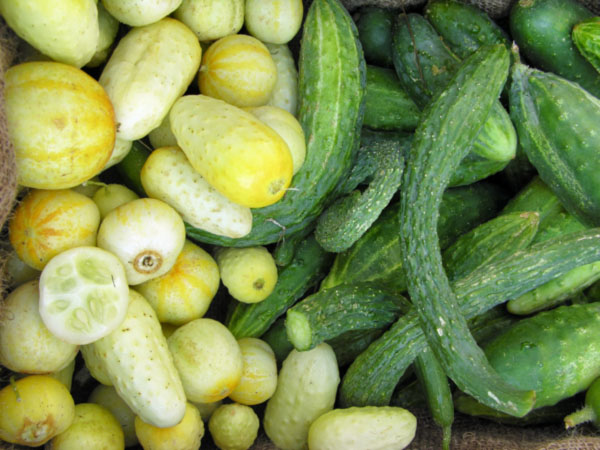
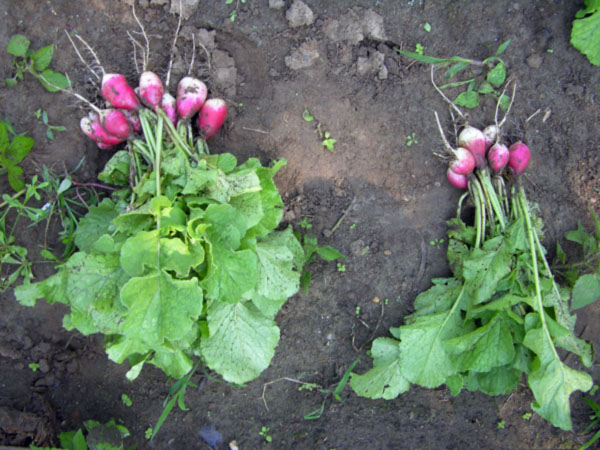


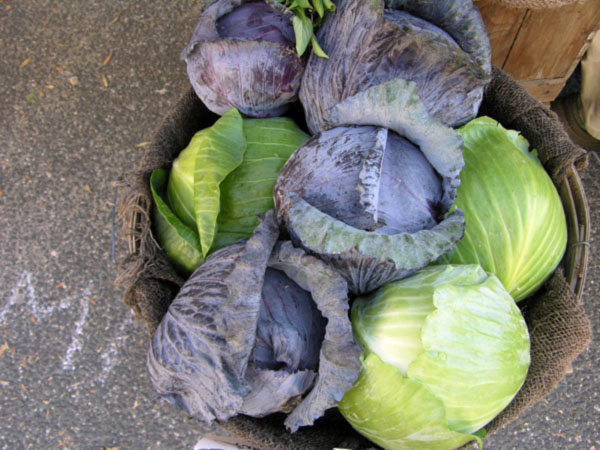
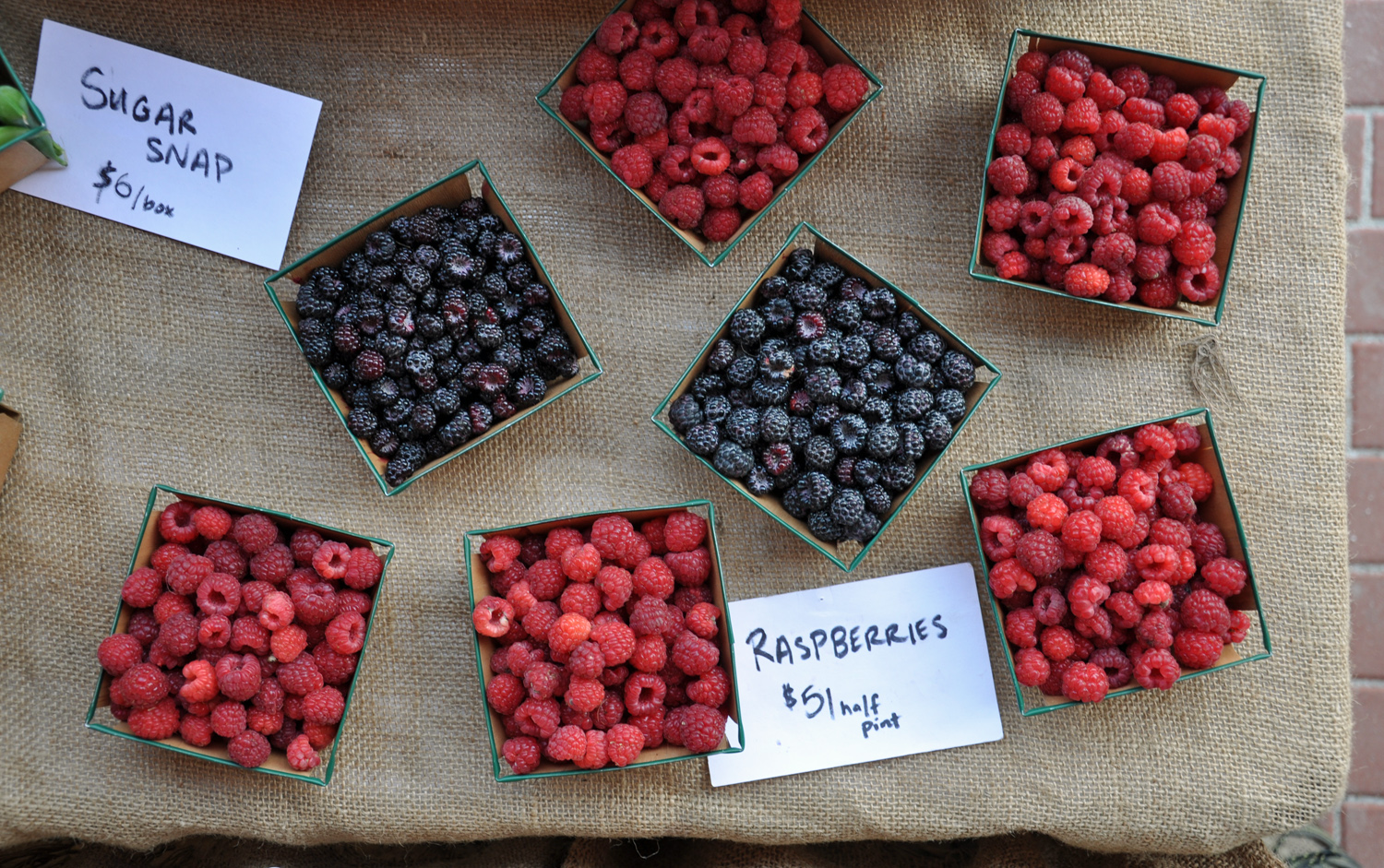
Who cooks on the farm, you or the interns? My philosophy about teaching farming is that you have to learn it by being it, by doing it. It's full immersion. That means you have to learn to live the life of a farmer. That means with family, together, eating together, working together, 24/7 nonstop. That's your life. And, if you think you want to do this, you need to start living it. It doesn't start at 8 and end at 4 - it doesn't work like that.
The other thing about food and cooking and farming - the common thread between those is it's all elementally maternal, it's elementally nourishing. And it you don't experience it top to bottom, you're missing part of it. So, the cooking of the food that's produced is part of the learning process, it's part of how everything works. And, if you're going to be selling at the farmers market, you need to know about the nuance of how the food cooks and tastes.
We're growing all heirlooms because of a commitment to sustainable agriculture. We grow them because it's essential to maintaining thousands of years of genetic selection for taste, flavor, nutrition and for applicability to a non-chemical system of growing. And when you're selling it, you have to be able to communicate what makes this produce different from the others. The cooking is hugely important to the whole program at Moon in the Pond.
What's your favorite thing to cook? I end up cooking quite a lot, and teaching cooking. But because I cook so much, I have to cook what I have at hand. Long ago I've given up coming up with an idea of what I want to make ... it's more a response to what I have. I have my staples, but when it comes to the types of dishes, it's all about what I have coming out of the garden, or what I have buckets of. Or, the only thing that I have. You know, in certain seasons it's like I'm down to squash. We're cooking squash. That's all I have and that's what we're having for the next month! Squash in sixteen million different ways. Winter squash. But, it's a lot of fine, and I like doing that.
What do you like to do to relax? I absolutely love to dance. I'm a dancing fool. I came of age during the disco era - a couple of weeks ago some friends had a disco party, cleared out the garage and put up a mirror ball, and that was fun. I'll dance to anything that has a little bit of funk and a bit of a beat and it doesn't matter if there's a venue to dance on, I'll dance. Absolutely love to dance.


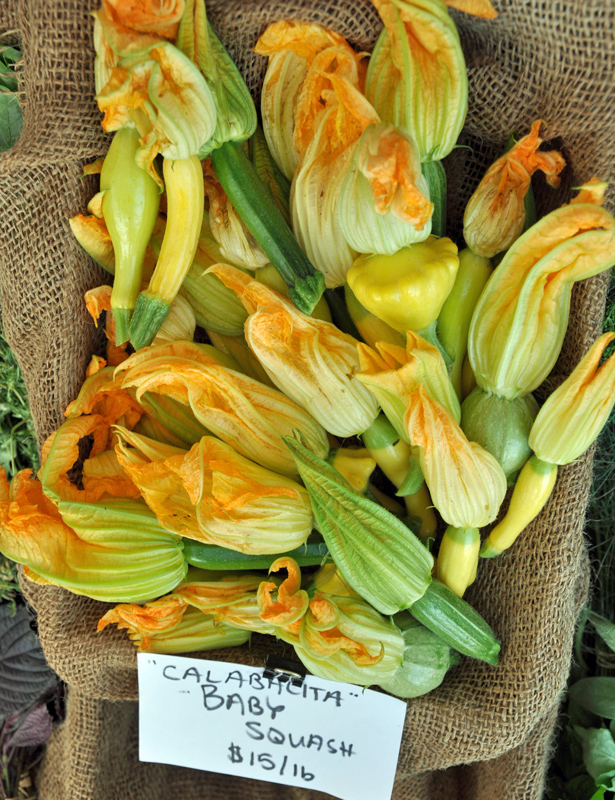
What's the best part of the farmers markets? I really love it when people discover something new. Somebody recently bought some Asian eggplant and came back and said "Oh my God, that was so wonderful". Or they try some of the heirloom snap beans the yellow snap beans and just be blown away by different snap beans. They all have different nuances of flavor. We have 3 or 4 different kinds of cucumbers, and people say "I didn't know that was a cucumber," and I'll slice them open and give them a taste of different cucumbers, and to see that point of revelation, "Holy smokes, who knew?!" There's a world of vegetables, a world of food. I love to see people connect essentially to their world, to what nourishes them, and it now is nourishing them intellectually, spiritually, sensually and physically. People come to a farmers market because they want to have a relationship with the person who's selling to them. They say "What's that?" and it's always fun to engage.
Video produced by interns of Moon in the Pond farm.




